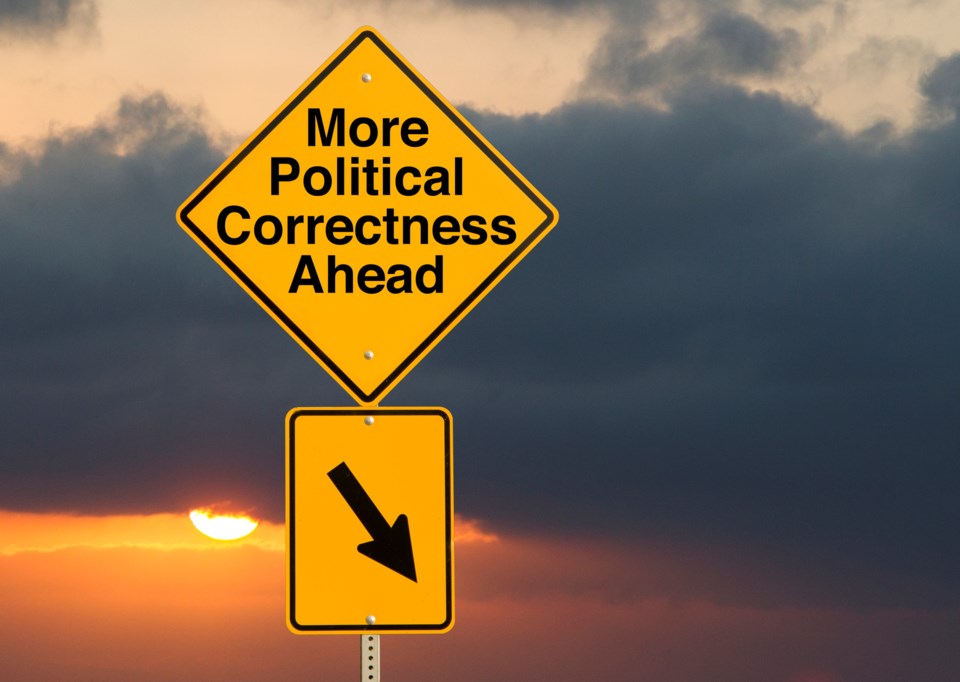More than three decades have passed since “political correctness” entered the North American lexicon. While some laud adjusting speech to minimize offence, others view it as an attack on existing freedoms.
Research Co. last checked on the perceptions of Canadians and Americans on this topic in 2022. Then, Canadians were more favourable to the concept (55 per cent) than their American neighbours (45 per cent).
Almost three years later, support for “political correctness” has increased by four points in Canada to 59 per cent and by eight points in the U.S. to 53 per cent.
When responses are assessed by ideology, more than seven in 10 Liberal and NDP voters in Canada (72 per cent each) and self-described Democrats in the U.S. (71 per cent) endorse “political correctness.” The proportions are lower among Conservative Party voters (49 per cent) and Republicans and Independents (44 per cent and 36 per cent, respectively).
The age breakdowns allow for a fascinating analysis. We practically see no difference in Canada. However, Americans aged 18 to 34 are more convinced about the benefits of “political correctness” (67 per cent) than those aged 35 to 54 (57 per cent) and 55 and over (40 per cent).
About a third of respondents in both countries claim to always act “politically correct” because it’s the right thing to do. Canadians are more likely than Americans to say they act “politically correct” because it’s the safe thing to do (43 per cent to 35 per cent), while Americans are more open to saying they do not act “politically correct” because it’s the wrong thing to do (17 per cent to 11 per cent).
When asked about specific professions, Canadians are not as radical as one might imagine. Americans are more likely to say that politicians (45 per cent), teachers (44 per cent) and journalists (39 per cent) should “always” practise “politically correctness.” Canadians allow for more leeway: 41 per cent want politicians and teachers to “always” be “politically correct,” and 33 per cent feel the same way about teachers. Comedians — as expected — are in a different league: Only 17 per cent of Americans and 12 per cent of Canadians want them to be “politically correct” all the time.
The issue of how to deal with works of art that pre-date “political correctness” sees little changes from 2022. Streaming services now feature disclaimers to explain that programs or movies are presented “as originally created” and “may contain outdated cultural depictions.” The existence of these reminders is endorsed by majorities of Canadians (62 per cent) and Americans (63 per cent).
The modification of content is more controversial. Just over a third of Canadians and Americans would print new editions of books that remove words deemed offensive. Fewer than two in five Canadians and Americans (35 per cent and 37 per cent, respectively) are in favour of re-dubbing movies to remove words that may be deemed offensive to a specific race or ethnicity.
The survey outlines stability in the overall views of Canadians on the concept of “political correctness,” as well as an increase in the appetite for the practice in the United States that is being driven primarily by Democrats and young adults. Perhaps we are seeing disappointed voters express both frustration with Donald Trump’s victory in last year’s presidential election, and uneasiness at a country that may become nastier towards minorities.
There is a political lesson to be learned from these findings. Obsessions from recent Conservative campaigns — federally and provincially — with “wokeness” yielded no victories for party leaders whose time would have been better spent debating issues and not borrowing from the political playbook of a nation where views on “political correctness” fluctuate dramatically with age.
Mario Canseco is president of Research Co.
Results are based on an online survey conducted m June 30-July 2, 2025, among 1,001 adults in Canada and 1,000 in the U.S. The data has been statistically weighted according to Canadian census figures. The margin of error is plus or minus 3.1 percentage points, 19 times out of 20, for each country.




